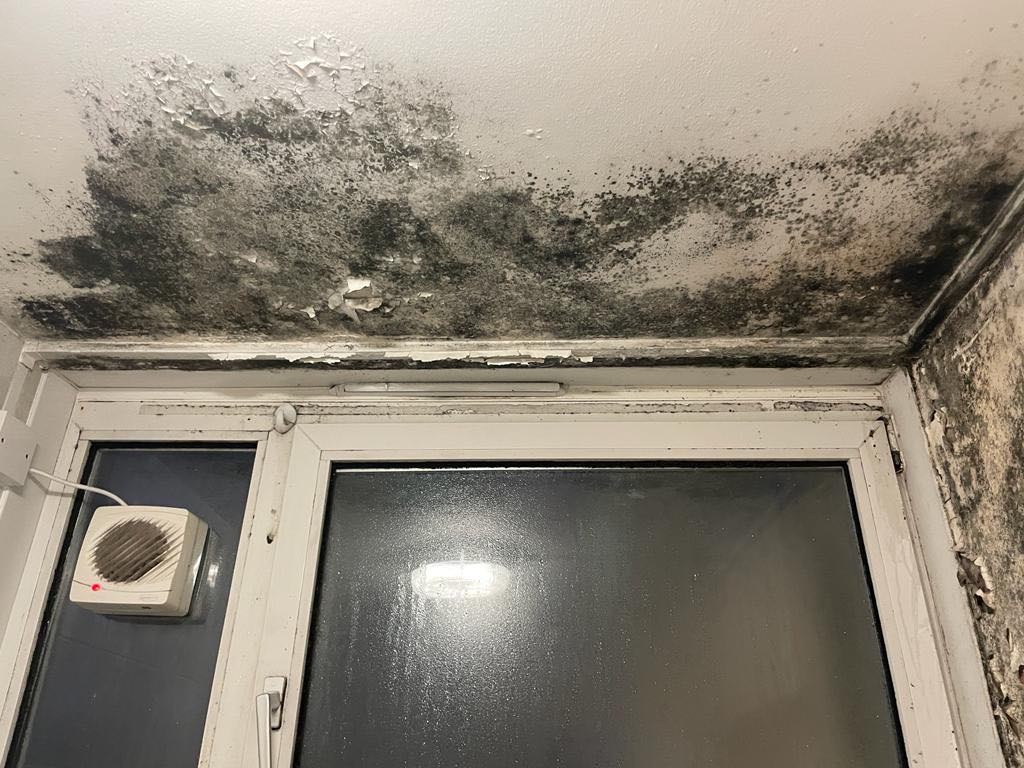Killer mould is a sad reality of child poverty for millions
Editorial: Unhealthy housing stock and an inadequate benefits system shame a rich and supposedly compassionate nation

One of the many examples of the disconnection between politics and real life is the current Westminster obsession with a scheme to remove asylum seekers to Rwanda, while the grip of poverty tightens on one in three families with children under the age of six.
As our report details, millions of young children are exposed to life-threatening mould in British homes as their parents struggle to afford to heat them. Mould is a problem in many damp and cold homes, causing health problems, such as those that led to the death of Awaab Ishak, a toddler in Rochdale, three years ago.
But many parents cannot afford to ventilate their homes or to heat them well, having to choose between heating and eating. These problems are getting worse for those who rely on state support, as electricity and gas prices have risen while benefits are squeezed in real terms.
Yes, the government has stepped in with “cost of living” payments designed to meet the average extra cost of energy bills, but that merely holds the line against a sudden and catastrophic worsening of the situation. It offers no respite to the long-term pressures of a benefits system that is increasingly mean, combined with the growing effects of a dysfunctional housing market.
The prime minister is entitled to claim credit for the cost of living payments, and even possibly to complain that such help is taken for granted, although it is designed to be highly visible as a direct cash transfer in instalments. But he is not entitled to pretend that poverty is being alleviated in this country.
There was a brief period when that was true, during the pandemic, when universal credit was bumped up by £20 a week. It was unfair that the uplift did not apply to those on so-called legacy benefits, but as a form of rough social justice it improved the lives of millions out of work or on low incomes. But those payments came to an end and Britain continued its path towards ever meaner social security payments, which are markedly lower than those in comparable European countries.
Rishi Sunak often claims in the House of Commons that the numbers in “absolute poverty” are falling, but this is misleading, as poverty has to be measured in relation to the standard of living of the country as a whole. Such statistical games are quickly exposed by any serious examination of the lives of people living on benefits in social housing. Not only has inflation been higher than average for food, which forms a larger part of their budget, but the rising numbers of people using food banks is testament to a long-term trend towards a less generous system.
The problem of mouldy, substandard housing is only the most dramatic and visible sign of a level of poverty that should shame a rich and supposedly compassionate country.
Of course, The Independent accepts that there are no easy or cheap solutions to poverty. We welcome rises in the minimum wage, and we support measures to prevent the abuse of long-term sickness benefits. But in the end, easing poverty and tackling killer mould will require higher public spending.
The £20-a-week uplift in universal credit, for those in and out of work, should be restored and extended to other benefits. Benefits should be paid for third and subsequent children – it is not fair to visit on children the supposed sins of their parents. And the programme of upgrading the insulation of social housing and the private rented sector should be stepped up.
Yes, this will cost public money but as we have said before, now is not the time for tax cuts.



Join our commenting forum
Join thought-provoking conversations, follow other Independent readers and see their replies
0Comments